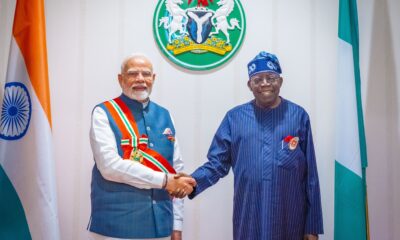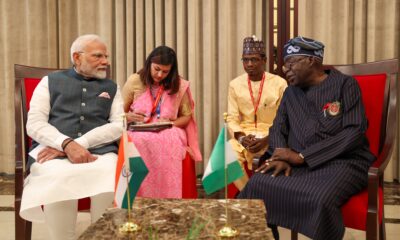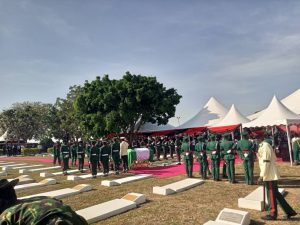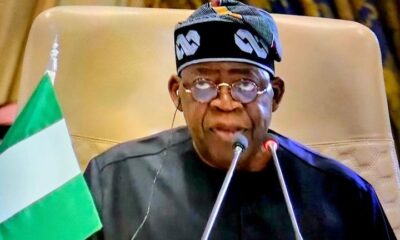Opinion/Feature
Tinubu The Audacity To Hope: One Year After
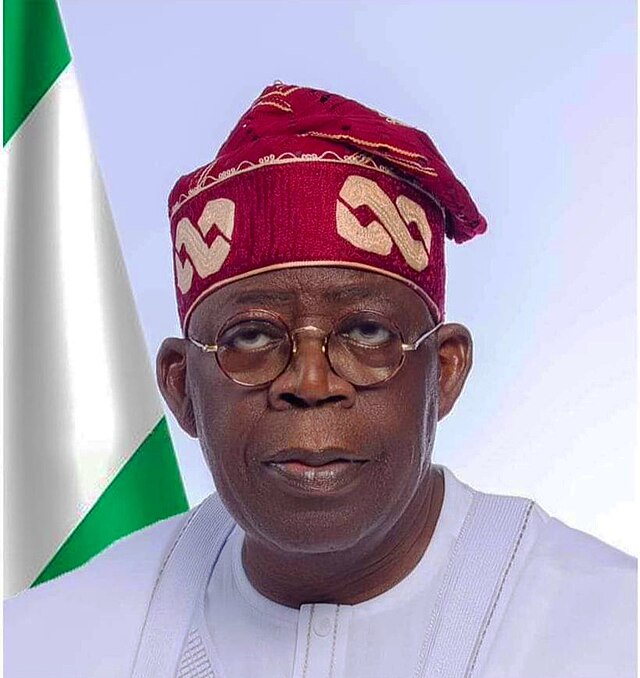
By Segun Adeleye
See how time flies!
It’s a year since that symbolical declaration in his inaugural speech “….that these things are within our proximate reach because my name is Bola Ahmed Tinubu, and I am the President of the Federal Republic of Nigeria.”
A lot can be said about the confidence that President Tinubu exuded, that everything he promised are within reach because of who he is.
Many can convincingly argue that one year is too short a period to assess the performance of an administration, and there are innumerable evidences in the long history of this unlucky country with leaders that wasted opportunities and ruined hopes in spite of many years they spent in power.
Having started as a series of my opinions ‘If I Were Tinubu’ shortly after the 2023 general elections that metamorphosed into a book – Tinubu The Audacity To Hope, that envisaged the great challenges he would face along with the accompanying hardship and practical solutions, using this as a barometer I may be unfairly classified among those that should be able to assess the administration coming a year after.
However, one fact about a prophesy is that there must always be an outcome. It either comes to pass or turn out as something that was presumptuously said which may not materialize.
With everyone consciously or unconsciously prep by prejudice like a shadow, it will be very tough to present a fair assessment of this administration, more so at a time of great hardship when many cannot imagine their current plight is the product of leaders that meant well.
Tinubu may be the only one perfectly qualified to assess himself after this one year being the dreamer and the visionary. As a visionary, he is who he is by the reason of what he saw and sold as hope.
Therefore, anyone that wants to correctly assess the President one year after must go beyond reading his mind, but try to find a way of sneaking into it and his conscience so as to be able to peep into what he is seeing with the universally acceptable mode of assessing students being to set exams and mark their scripts, human psychology will remind us that what was not said speaks volume if we care to read from body language and other means.
The occasion of the inauguration of the 700km Lagos-Calabar Coastal Highway on May 26 was a natural setting to glimpse into the mind of Mr President. For those who cared to look, they may not miss seeing an unapologetic person with strong will and confidence that he knows what he is doing. He even went far to mock his critics that, “Today is my day to boast.”
He went on to add that “The deal is done. The dream is realisable. The determination to build a nation of prosperity is possible. We said we would build this road, and we are determined to do it. Do not be afraid. We will do this road, and it will be a success for Nigeria, and we will do even more of this.”
Reflecting on the spirit behind the pursuit of such a grand project estimated to cost N15 trillion may even help to shed light on how Tinubu’s mind works. There are other branches to the coastal highway which include a spur to the north-central part of the country and another 1,000km Sokoto-Badagry Highway that is expected to connect Sokoto to Badagry in Lagos State and pass through Kebbi, Niger, Kwara, and Oyo States.
The oppositions have been direct in their criticism of the project from the point of view of the President’s son’s relationship with the contractors. This scrutiny may be justified in the spirit of transparency and corporate governance, but it would have carried more weight if they had hammered on why the rush to fund the highway though public funds when the option of Public Private Partnership (PPP) has not been explored?
What is in Tinubu’s DNA that craves for grand projects may be captured from what he said about the coastal highway that it “would ensure that future generations have a good landmark and memory to treasure while serving as a good precedent set for others to follow in the timely provision of world-class infrastructure. We have a road that will outlive all of us here. That is how to build the future. This project is more than a mere road. It is a symbol of hope, unity, and prosperity.”
In the real sense of it, the coastal highway may have changed the narrative from constant accusation of government for corruption to the choice of what projects to prioritize.
On the general overview of the administration’s performance in year one, one will not miss the fact that the rhetoric on corruption that trailed past governments has fizzled out with the only scare being the one involving Dr Betta Edu, the minister of humanitarian affairs and poverty alleviation over a leaked memo wherein she asked the accountant-general of the federation to transfer N585 million to a private account. Of course, President Tinubu swiftly acted by suspending the minister and directed the EFCC to conduct a thorough investigation into the financial transaction involving the ministry, that nothing is heard again about the probe since January, may sow a seed of doubt over the commitment of the administration to discourage corruption.
The other two prominent corruption cases in the first year were carried over from the previous administration. They are the one involving the former minister of aviation, Hadi Sirika and that of the former CBN Governor, Godwin Emefiele which the President had pledged a thorough housecleaning of the “den of malfeasance” the CBN had become.
However, the Betta Edu saga should not rob the President of the credit of the quality of appointments into his cabinet and to government agencies. He has exceeded expectation with the injection of professionals to head most strategic agencies and end the culture of mediocrities in offices that country is known for. The choice of the managers of President’s information and strategies has also been civil. The President has been able to leave out some hawks which public opinion earlier tipped would be his spokespersons. The advice in my book then was “Those that must be speaking for the President and the country must be people that have compassion, people that know the value and care for human beings. They must be people that are conscious of the place of black man in history for the African dream which Nigeria has suppressed to finally come to reality. When speaking for the President or the country, it must be with humility, clarity, grace, hope and confidence to inspire all Nigerians and in extension Africans on the truth and our heritage that it’s a new dawn to fulfill destiny.”
From the home front, the First Lady, Senator Oluremi Tinubu who I recommended to be the prayer warrior for the administration, also deserves commendation as she has not been obstructive in going about her tasks to empower women to the best of her ability. The highest point of her year one was her response in Bauchi to a threat by a cleric that she deserved to die for her Christian faith, when she said, “I am too old to be afraid. If God has granted me over 60 years on earth, I shouldn’t fear death.”
On Tinubunomic, one must acknowledge that the President inherited an economy inflicted with fuel scarcity, naira redesign crisis, bad roads, poor power supply, joblessness among others things that make life miserable for citizens. But the fact that life have become tougher for Nigerians one year after will make it difficult to convince many that the Tinubunomic magic is working.
All the major political parties were on the same page to remove fuel subsidy during the general election, but no one knew how painful and disruptive it would be until it was done by the President. It has been dragging to get the Dangote Refinery to start fuel supply into the market while the Port Harcourt Refinery too is yet to deliver. When they eventually do, they should help to guarantee stable fuel supply, not necessarily sharp drop in prices. But the biggest gain will be the saving of about $25 billion being spent yearly to import petroleum and other refined products.
In fact, the $25 billion saving will come as a big relief for the CBN to manage foreign exchange reserves and naira value which got out of hand and depreciated close to N2,000 against the dollars during the year.
The government had faced an uphill task battling inflation during the year as it soared to 33.69% in April 2024. The Federal Government was forced in August last year to approve N5 billion for each state and the Federal Capital Territory (FCT) as palliative to enable them procure food items for distribution to the poor in their states.
The high inflation and naira devaluation have crippled the purchasing power thereby forcing wage increase demand by labour as they embark on strikes to achieve their objectives. Eventually, the labour will soon get wage increase, but many believe the implementation of a substantial new minimum wage will further increase inflation, job loss and possible recession.
On oil and gas, the President has been bullish with the signing of Executive Orders to provide fiscal incentives for non-associated gas, midstream and deepwater oil and gas and also to transform the gas and energy sectors of the economy. Operators are excited with the Executive Order that streamlines contracting processes, procedures, and timelines from 36 months to six months.
The issue with the electricity sector is more complex as it requires huge investment and long time for projects completion, which explains the sharp resistance to tariff increase by labour when regular power supply has not been achieved, along with other economic challenges facing the masses. While the President has been applauded for signing of the Nigeria Electricity Act 2023 which accommodate the participation of the states in the sector, quickly followed by the Electricity Act (Amendment) Bill 2024 which addresses the development and environmental concerns of host communities, my recommendation that the government should get Siemens of Germany to deliver in the deal to increase electricity generation to 25,000MW in six years is still valid.
The President really deserves commendation for the signing of Student Loan Amendment Bill of 2024 after ensuring the repeal of the Students Loans Act of 2023 which he earlier signed. Ordinarily, other leaders would have left the Act as it was since it was recently signed and allowed its shortcomings to linger on with the noble objectives buried in government bureaucracy. But by returning the Act to be repealed underlines the seriousness of the President to prioritise the well-being of Nigerian children while recognising education as a key weapon against poverty. The Student Loan may stand out as the greatest achievement of the President in his first year and the best thing that ever happened to Nigerian children. With the Student Loan, parents that will not mind to steal in offices just to be able to pay school fees can now breathe a sigh of relief.
While it’s acknowledged that the administration has been brave with forex management through the liberalization of naira, the progress with payment of foreign airlines’ trapped funds along with positive outlook for Foreign Direct Investment (FDI), one can say out that there are still much to be done in the areas of productivity, agriculture, blue economy and cost of governance.
I wrote that national productivity growth rate remains low due to infrastructure deficit, unemployment, constant strike actions, brain drain, insecurity among others. Agriculture should be the saving grace for government to solve the forex scarcity, unemployment and hunger. It cannot be practically seen yet that the government has gotten it right with agriculture as the prices of food have gone beyond the reach of the citizens. I also wrote in my book then that “There are some exportable agricultural products that keep on having growing global demands which Nigeria has the right climate to produce to quickly bridge its foreign exchange gap in few years. The Tinubu government can return to agriculture and make it the number one foreign exchange earner for the country by attracting investments and partnering the state governments based on the agricultural products they are the best at. The farm settlements that the government will promote should be mechanized, modernized with all amenities in the cities such as sporting and recreation centers with cable TV among others to attract youths and help solve unemployment problem.”
As for the cost of governance, the President has made the right move with a ban on all foreign trips by ministers and other government officials with exemption to trips deemed absolutely necessary. As the ban to last 90 days from 1 April, 2024 will lapse by the end of this June, the question is what next? Many observers believe that cutting the cost of governance can be more broader to capture the National Assembly who are living large and had bought expensive luxury sport utility vehicles for its 469 members despite the tough economic situation Nigerians are grappling with.
But one of the positive things that can be take away from the first year of President Tinubu is the revelation of his preparedness for the job and his commitment to deliver. He said a couple of times during the year that people should not pity him as he asked for the job. He has been humble, fearless, revolutionary and selfless like someone that knows the secret of fear. He has shown that he is a team player who is open to fresh ideas as he had even commended his hard working minister, Nyesom Wike for being a very good team leader, saying, “we all collectively will not let you down,”
In fact, this is one of the most important times in the history of Nigeria, more so that we still have four former heads of state alive to witness and reflect on what fear and selfishness had cost them from doing for this country, and for the aspiring leaders to learn that they can make a difference and leave a legacy for the generations yet unborn.
*Segun Adeleye, President/CEO World Stage Limited is the author of Tinubu The Audacity To Hope and other books.
Opinion/Feature
Downstream Deregulation: Between Obasanjo’s Half-measures And Tinubu’s Bold Leadership

Opinion/Feature
UNCOMMON SCHOLAR, EXCEPTIONAL ADMINISTRATOR: MY TRIBUTE TO PROF. OLOYEDE AT 70

By President Bola Tinubu
As Professor Ishaq Oloyede turns 70 tomorrow, October 10, I pay a special tribute to this astute administrator, educator, author, and scholar, currently the Joint Admissions and Matriculation Board (JAMB) Registrar.
As the former Vice Chancellor of the University of Ilorin, Prof. Oloyede’s invaluable contributions to the nation through academia and public-sector administration have significantly impacted the academic community.
ALSO READ: Tinubu Congratulates Zainab Shinkafi-Bagudu On Her Election As President, UICC
His impactful tenure at the University of Ilorin, during which he introduced landmark ideas and innovations that helped the institution attain enviable heights, is on record.
Through patriotic dedication and commitment to his craft, Prof Oloyede imparted knowledge and character to thousands of students who underwent his teaching during his glorious and impactful academic career.
Indeed, the bedrock of development lies in education. Developing nations, including Nigeria, are in dire need of more scholars like Prof. Oloyede. His selfless sacrifices and innovative approaches to learning and leadership give hope for a brighter future.
Perhaps more remarkable is Prof. Oloyede’s transformative leadership at JAMB. He pioneered and sustained a series of reforms and technological innovations that have made the admission process in Nigeria transparent and credible.
In his eight years of stewardship at the board, thus far, Prof. Oloyede has demonstrated an uncommon commitment to financial integrity and accountability in public service. He has also raised the bar in administration and management.
I am proud of Prof. Oloyede’s accomplishments.
The nation owes the Professor of Islamic Jurisprudence a debt of gratitude for transforming JAMB, traditionally a non-revenue-generating government agency, into a consistent contributor to the national treasury through efficient financial management. His contributions to JAMB are invaluable and greatly appreciated.
On this occasion of his 70th birthday, I join members of the academic community, students, JAMB staff, and well-wishers in celebrating this scholar who, in words and deeds, has also done a lot to propagate the Islamic religion.
I pray that Almighty Allah will continue to honour the distinguished professor with health, wisdom and strength to serve the nation for many more years.
Opinion/Feature
Clarification On NNPCL Refinery Operations
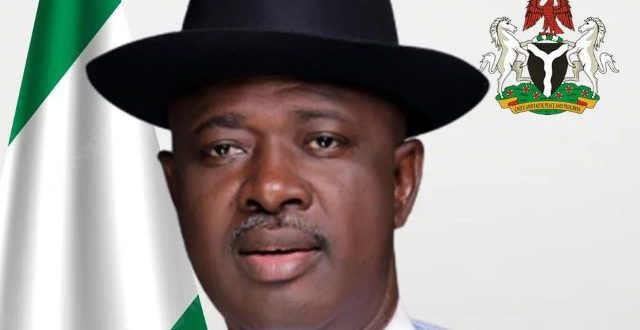
By Sen. Heineken Lokpobiri PhD
My attention has been drawn to statements made by Engr. Kamoru Busari, Director of Upstream in the Ministry of Petroleum Resources, who represented me at a recent conference in Lagos. I wish to categorically state that the claim that I directed the Nigerian National Petroleum Company Limited (NNPCL) to stop running its own refineries and focus solely on equity participation in other refineries is false. This does not represent my position as Minister overseeing the oil sector, nor does it reflect the stance of the Federal Government.
It is important to clarify that NNPCL is a company governed under the Companies and Allied Matters Act (CAMA), with a functional board and management. The Ministry of Petroleum Resources does not control or run NNPCL, as it operates independently like any corporate entity.
ALSO READ: NNPC/Seplat JV’s “Eye Can See” Programme Restores Vision, Hope In Imo
The oil and gas sector is fully deregulated, and the Nigerian government remains committed to promoting in-country refining. We encourage companies, including NNPCL, to operate independently, following global best practices. While we provide strategic guidance, we do not interfere directly in the operations of these companies.
I reaffirm our commitment to supporting the growth and independence of NNPCL, ensuring that its operations are in line with international standards for efficiency and transparency and profitability.
Sen. Heineken Lokpobiri PhD, Minister of State Petroleum Resources (Oil), wrote from Abuja, Nigeria

